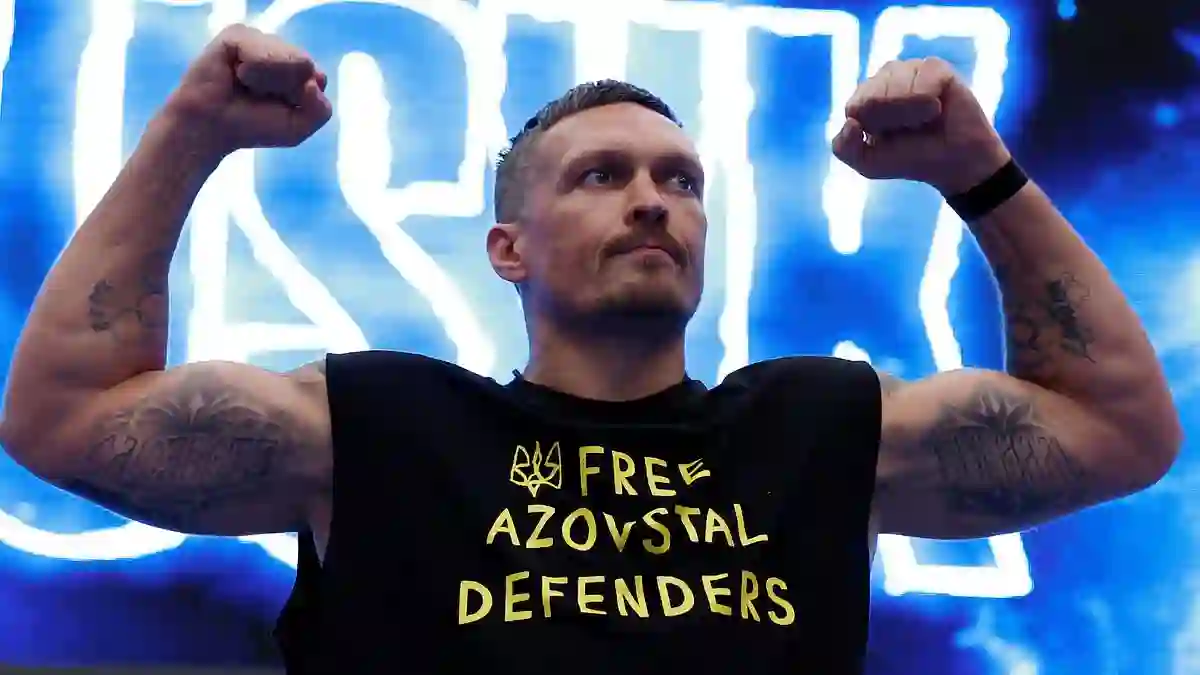As the world gears up for another epic heavyweight showdown, Oleksandr Usyk isn’t just preparing for a fight in the ring — he’s carrying the weight of an entire nation on his shoulders.
But don’t be fooled — for Usyk, this isn’t just about belts or titles. It’s about purpose, survival, and legacy.
A Fighter in Every Sense of the Word
Usyk often jokes — with that unique mix of deadpan and depth — that the world is basically a giant psychiatric clinic full of people who’ve lost their way.
That might sound extreme, but for a man who’s battled in both war and the ring, it’s a perspective forged by fire.
This Saturday night, he’ll step into Wembley Stadium to face Daniel Dubois once again — and possibly become the first two-time undisputed world heavyweight champion in the four-belt era.
But while most fighters focus on strategy, Usyk’s attention goes far beyond the spotlight.
Remembering Where It All Began
Long before the limelight, there was Simferopol — the small, often-overlooked town in Crimea where Usyk was born.
“Most people never leave,” he says. “We were just ten boys kicking a ball around. I’m the only one who made it out.”
His story is as much about those he left behind as it is about what he’s achieved.
Some of his childhood friends still live there, and one even travels with him as part of his team.
Others, heartbreakingly, didn’t survive — likely a quiet nod to those lost in Ukraine’s ongoing war.
The War Is Still There, Even If He Doesn’t Talk About It
These days, Usyk doesn’t speak about the war with Russia as openly as he used to.
But its impact is still deeply woven into everything he does — from his career choices to the charitable support he gives to Ukrainian soldiers.
The trauma, the chaos, and the madness of war sit quietly behind his icy composure.
He’s said before that Russian President Vladimir Putin could easily qualify as a patient in his metaphorical “global clinic.”
But now, his thoughts are more focused on rebuilding, on helping others, and on providing a different future for his family.
Building a Life Beyond Struggle
Usyk remembers going without even the basics.
“When I was a boy, there was no butter to put on our bread,” he says.
Now a father of four, he’s making sure his children — and future generations — have more than enough.
But comfort won’t replace discipline. His eldest son dreams of becoming a judo world champ, the youngest wants to follow in his boxing footsteps.
Usyk supports them, but insists that hard work is the only real path to success.
“One thing I always tell them,” he says, “is never put off to tomorrow what you can do today.”
He even makes them write their daily goals down — a habit he believes contributes to at least 20% of success.
“It focuses the mind. That small thing can change everything.”
Respect Even for Rivals
Usyk holds no ill will toward his opponents — not even Dubois, who aims to “bring violent chaos” to Wembley this weekend.
In fact, after their last match two years ago, Usyk told him directly: “If you lose to me, it could be the end.
But if you work harder, you can come back.”
Turns out, Dubois took that advice seriously.
He shocked the boxing world by knocking out Anthony Joshua and snatching the IBF title.
Now 27, Dubois is no longer the kid trying to prove himself — he’s a legitimate threat.
The Iceman Stays Cool
When asked about Dubois’s threats to unleash chaos, Usyk just shrugs: “I don’t listen to things like that.
I see no bad in anyone. I am cold. The Iceman.”
That mental toughness — perhaps his greatest weapon — has helped him stay undefeated.
“No matter how hard they hit, nobody can break this brain,” he says. And he’s not done yet.
There are “two more fights” ahead, he confirms, because too many people still rely on him.
Life in the Fast Lane, but Focused on the Future
He may ride around London in a Rolls-Royce with a black-limo entourage, but don’t mistake that for indulgence.
Usyk avoids the English tea and nightlife — “I have to sleep at night” — and stays laser-focused on the task ahead.
And what happens when the gloves finally come off for good? “Training young boxers,” he says without hesitation.
“Helping anyone who needs guidance through the madness.”
If Not Boxing, Then What?
Asked what he’d be doing if boxing weren’t part of his life, Usyk pauses — then offers a list that says more than a biography ever could: “Music, movies… jail.”
It might sound dramatic, but it’s an honest reflection of a man whose life could’ve taken countless different turns — some beautiful, some brutal — depending on a thousand tiny moments of luck, pain, and perseverance.
